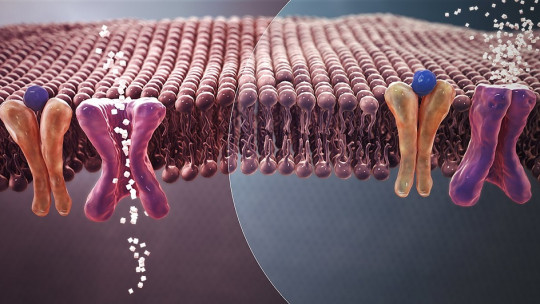Sometimes the monsters are not under the bed, but on top of our table. And, no, with this we do not want to demonize sugar, so loved by many, but we do want to warn you about the risks of excessive consumption.
You’ve probably heard about the effects of sugar on physical health: cavities, obesity, diabetes… But what if we told you that it can also influence our mental health?
Recent studies suggest that there is a relationship between excessive sugar consumption and increased anxiety, and in this article, we are going to explore this possible connection.
Let’s see How does this relationship between sugar and anxiety work? and what you can do to reduce its impact on your life.
Tell me what you eat and I will tell you your emotional state
The connection between our diet and our emotions is more intense than we might think. Our brain, which is the organ that controls our emotions, thoughts and behaviors, depends greatly on the nutrients we obtain through food.
The foods we eat influence the production of neurotransmitters chemicals that regulate our mood, sleep, appetite and other cognitive functions.
A balanced diet, rich in fruits, vegetables, whole grains and lean proteins, provides the nutrients necessary to maintain a healthy brain and promote a positive mood.
The general composition of our diet, as well as our eating habits, influence our psychological well-being. For example, Diets high in processed foods have been associated with an increased risk of developing mood disorders while diets based on whole, unprocessed foods have been linked to better mental health.
It is important to note that diet is only one piece of the puzzle. Stress, genetic factors, social relationships and other factors also influence our mental health. However, a healthy diet can be a valuable ally to maintain a balanced mood and prevent disorders such as anxiety and depression.
Sugar and anxiety: Is there a connection?
For many years there has been talk of a possible relationship between sugar and anxiety, and it is a topic that has not stopped being studied. In fact, recent research, such as that led by Manjae Kwon, suggests a direct connection between blood sugar fluctuations and mental health.
When we consume foods high in refined sugars, our blood glucose levels experience sharp spikes and drops. These sudden changes can trigger a series of reactions in our body, directly influencing our mood.
How does this happen? Well, When experiencing a rise in sugar, our body releases insulin to regulate these levels. However, when sugar decreases rapidly, a hormonal response occurs that can lead to anxiety, irritability, and other symptoms associated with mood disorders.
In addition to glucose fluctuations, excessive sugar consumption has been linked to inflammatory processes in the body. This chronic inflammation can affect various brain functions, including those related to mood regulation.
Although more studies are needed to fully understand the biological mechanisms underlying this connection, evidence suggests that there is a relationship between sugar consumption and anxiety.
Understanding this connection between sugar and anxiety has important implications for our mental health. By choosing foods that promote stable blood sugar levels, we can contribute to our emotional well-being.
However, it is also important to mention that a healthy diet can be a complementary tool in the prevention and management of anxiety disorders, but it does not replace professional treatment.
Keys to reduce sugar consumption
Reducing sugar consumption can be a significant step towards better mental health. By reducing sharp spikes and drops in blood glucose, we can help stabilize our mood and reduce anxiety symptoms.
Follow these guidelines to avoid consuming so much sugar daily.
1. Prioritize whole foods
Opt for fruits, vegetables, whole grains, legumes and lean proteins. These foods provide essential nutrients and release energy more gradually, preventing sugar spikes.
2. Read the labels
Check the labels of processed foods carefully. Many products, even those that do not have an obvious sweet taste, contain large amounts of added sugar under different names.
3. Reduce ultra-processed foods
Ultra-processed foods, such as fast foods, packaged snacks, and sugary drinks, are designed to be highly addictive and unhealthy. These products often contain artificial ingredients, preservatives, and large amounts of sugar and sodium.
4. Find natural alternatives to sugar
Reducing sugar can bring positive changes in your mood. Use natural sweeteners such as stevia or honey in moderation. You can also enhance the flavor of your food with spices and aromatic herbs.
Tips to protect yourself from excess stress
Follow these recommendations to prevent anxiety and stress problems.
1. Use relaxation techniques
Stress can increase the desire for sugary foods, leading to a vicious cycle. Practice relaxation techniques such as meditation, yoga, or deep breathing to manage stress more effectively.
2. Get enough sleep
Our quality of sleep is essential for our mental health. Not getting enough sleep causes our body to release higher levels of cortisol. the hormone related to stress.
By getting little sleep, our body releases more cortisol, the stress hormone. So if you want to manage your anxiety, make sure you prioritize sleep and establish a regular sleep routine.
3. Do physical activity regularly
Moving your body is not only good for your physique, but also for your mind. Exercise is a powerful natural antidepressant that helps reduce stress and anxiety. Besides, Helps regulate blood sugar levels, preventing spikes and falls which can trigger mood swings.
4. Connect with others
Healthy social relationships are a buffer against stress and anxiety. Talking to friends and family about what’s troubling you can help you feel lighter and more connected.
5. Seek professional help
Feeling anxiety is very common and we all need help at some point. A therapist can provide you with personalized tools and strategies to manage it more effectively. Psychologists specialized in the health field intervene in these problems constantly.









